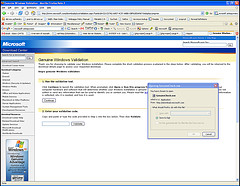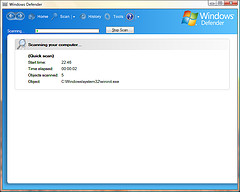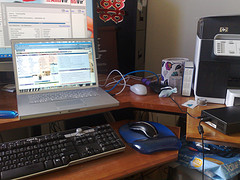
flickr.com/hendry
If your computer is behaving oddly, is slowing down, gets hung up in the middle of your work, or is bedeviled with “pop-ups,” then it is possibly infected with spyware.
Spyware gets into your computer due to something you have done, like installing free games, clicking a button on a pop-up window, or programs or software.
It is appraised that anywhere from twenty to fifty percent of online network traffic is accomplished by spyware. Read more . . .

